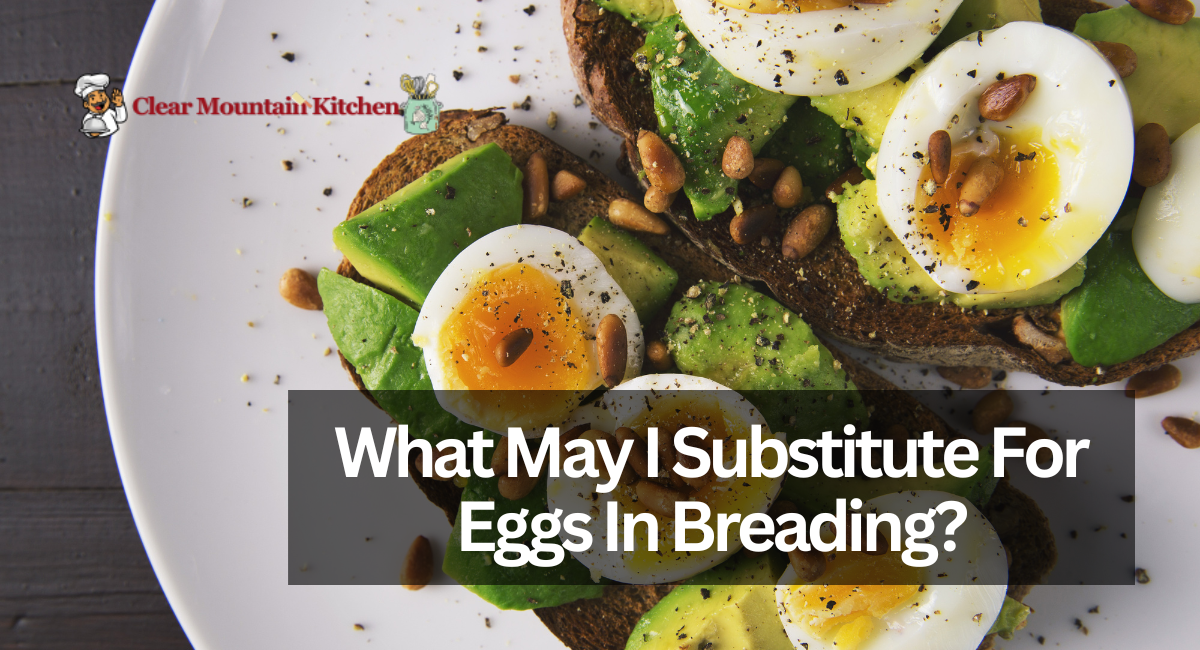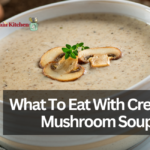Commence a gastronomic expedition into novel substitutes for eggs utilized in breading, uncovering an array of prospects that extend beyond the conventional egg wash. This exhaustive guide presents a variety of inventive substitutes that accommodate diverse tastes and preferences, including vegans, those with dietary restrictions, and those simply interested in exploring new flavors. These alternatives will transform your dishes with novel textures and flavors.
What May I Substitute For Eggs In Breading?
Numerous substitutes exist for eggs in breading, catering to various dietary preferences and requirements. Examples of frequent replacements include:
1. Plant-Based Milk Or Yogurt
Breading can be effectively bound with non-dairy milk alternatives such as almond milk, soy milk, or oat milk. Similarly, vegan yogurt and buttermilk substitutes can effectively adhere breadcrumbs to food.
2. Flaxseed Or Chia Seed Mixtures
Form a gel-like mixture by combining water with ground flaxseeds or chia seeds. This gel effectively enhances your dish’s nutritional value by incorporating omega-3 fatty acids and bond breadcrumbs.
3. Pureed Avocado
The cohesive properties of pureed avocados are attributed to their velvety consistency. In addition to facilitating the adhesion of breadcrumbs, it imparts a distinctive flavor profile to the breaded items.
4. Mashed Potatoes
Mashed potatoes, especially after they have chilled, can be utilized as a cohesive foundation for breading. For a crispier finish, coat your food in the pureed potatoes before dusting it with breadcrumbs.
5. Oil Or Vegan Butter
Before coating with breadcrumbs, cover the surface of the food with oil or liquefied vegan butter to improve adhesion and crispiness during baking or frying.
6. Aquafaba
Aquafaba, a viscous liquid derived from canned legumes, is an excellent egg substitute. Protein content enables it to function as a breading binding agent.
7. Commercial Egg Substitutes
Various commercially accessible egg substitutes are engineered with cooking and baking in mind. Use them as directed on the packaging when preparing breading.
May I Substitute Oil For Eggs?
- Indeed, there are circumstances in which oil can be substituted for eggs, most notably when breading is involved. Although fat does not function as a cohesive agent like eggs, it can be used as a coating to facilitate the adhesion of breadcrumbs to the food’s surface.
- Apply a thin layer of oil to the surface of the culinary item using a brush. Ensure that a fine coating covers the entire surface.
- Following the oleating process, compact breadcrumbs onto the slippery surface. Ensure that the breadcrumbs adhere uniformly to establish a consistent coating.
- Cook the breaded food item according to the instructions in the recipe.
- Oil can facilitate the adhesion of breadcrumbs to food surfaces, it may exhibit different binding capabilities or aid in the breadcrumbs’ sticking to the food as effectively as alternative methods such as flaxseed mixtures, plant-based milk, or pureed potatoes. Before cooking, it is critical to carefully manage the breaded item to prevent the breadcrumbs from escaping.
Is Coconut Cream A Viable Substitute For Eggs?
- Coconut cream can occasionally be used instead of eggs, especially in recipes that call for a creamy consistency or coconut flavor. Nevertheless, it may be an approximate substitute for eggs in some culinary preparations, notably in breading, where cohesive qualities are critical.
- In sure desserts and baked products, where eggs are required to impart moisture or a creamy consistency, coconut cream could be an acceptable alternative. Like eggs, coconut cream can impart thickness and water to a dish through its creamy texture.
- Approximately 1/4 cup of coconut cream should be used in place of each egg specified in the recipe. Modify the quantity by the intended consistency and level of hydration.
- Before incorporating the coconut cream into the recipe, ensure it has a uniform consistency by whisking or blending it thoroughly.
- Bear in mind that the incorporation of coconut cream into a dish will impart a discernible coconut flavor. This ingredient may be desirable when coconut tastes good with other flavors.
- Notably, cocoa cream may not be a viable alternative to eggs in recipes or applications where eggs function as a binding agent—such as breading or those necessitating structure and stability. This is because coconut cream lacks the critical properties of eggs.
Deviating from the traditional egg-based breading provides access to various flavorful and adaptable substitutes. By adopting these alternative techniques, one can tap into an infinite reservoir of culinary innovation, accommodating diverse dietary requirements while augmenting preferred favorites’ textural qualities and gustatory experiences. Investigate these substitutes for egg-based breading to enhance your culinary endeavors and reestablish the craft of breading with creativity and palate.
Your gratitude for reading.






